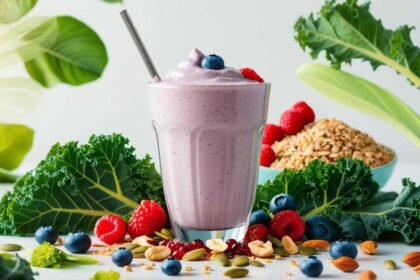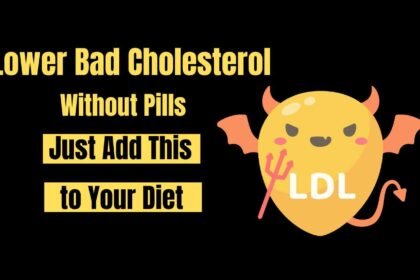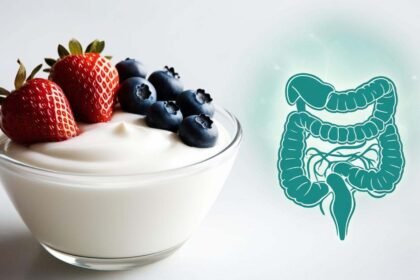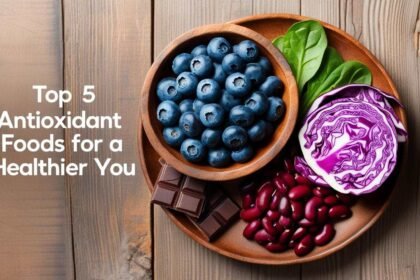Let’s be real—most of us don’t give our gut health a second thought until something starts feeling off.
Maybe it’s bloating that won’t go away, a sluggish digestion that slows you down, or that random bout of gas that seems to show up at the worst possible time.
While it’s easy to blame stress or that one weird meal, the truth is that our everyday eating habits have a much bigger impact on our digestive health than we realize.
Gut health isn’t just about avoiding stomachaches. A happy gut supports your immune system, helps you absorb nutrients, and even plays a role in your mood.
Yep, your gut and brain are totally in sync. And two sneaky types of food could be messing that up more than you think.
Let’s break it down.
1. Processed Meats: The Sneaky Gut Disruptor
Who doesn’t love a sizzling piece of bacon or a quick deli sandwich? They’re tasty, convenient, and everywhere—from breakfast diners to office lunch trays.
But here’s the catch: processed meats like sausages, hot dogs, bacon, and those neatly sliced deli meats are doing your gut no favors.
These foods are pumped with preservatives like nitrates, sodium, and all sorts of chemical additives to keep them looking and tasting good for longer.
But while that might be great for shelf life, it’s not so great for your gut.
Studies show that these preservatives can seriously mess with your gut microbiome – the trillions of bacteria living in your digestive tract that keep things running smoothly.
When you regularly eat processed meats, you’re feeding the bad bacteria and starving the good guys.
That shift can lead to inflammation in your gut lining, and over time, that’s a recipe for trouble. We’re talking about a higher risk of chronic conditions like colorectal cancer and digestive disorders.
You might also notice the more immediate effects: bloating, constipation, or just feeling “off” after eating.
If your digestion always seems sluggish after a sausage-and-egg breakfast sandwich, that’s probably not a coincidence.
A Better Choice: Go Fresh and Lean
The good news? You don’t need to swear off meat entirely. It’s all about making smarter swaps.
Instead of that deli sub, try grilled chicken or roasted turkey that you cook at home. Fish, beans, lentils, tofu, and eggs are also great options that your gut will thank you for.
And if you’re feeling overwhelmed by the idea of “cooking everything from scratch,” start small.
Prepping a batch of grilled chicken or roasting a tray of veggies at the beginning of the week can go a long way.
You’ll have healthy protein and fiber on hand—and you’ll be less tempted to reach for those nitrate-loaded hot dogs.
2. Artificial Sweeteners: Not as Sweet as They Seem
We’ve all been there: You’re trying to cut back on sugar, so you grab that zero-calorie soda, sugar-free gum, or those trendy protein bars with “no added sugar.”
But what a lot of folks don’t realize is that artificial sweeteners – like aspartame, sucralose (aka Splenda), and saccharin—can mess with your gut in a whole different way.
Sure, they help reduce your sugar intake, but that doesn’t mean they’re harmless.
Your gut bacteria don’t react well to artificial sweeteners.
Research suggests that these sweeteners can disrupt the balance of your gut microbiome, reducing beneficial bacteria and possibly promoting glucose intolerance – which means your body has a harder time processing sugar, even when you’re not eating much of it.
Some people also report feeling bloated, gassy, or uncomfortable after eating foods with artificial sweeteners.
That’s especially true if you’re sensitive to them or consuming them in large amounts.
And here’s another kicker: even though artificial sweeteners are meant to curb your sugar cravings, for some people, they do the opposite.
You might find yourself constantly craving sweets, leading to a never-ending cycle of reaching for more low-cal “treats” that just make things worse.
A Better Sweet Swap
So what’s the alternative? Natural sweeteners like honey, maple syrup, or date syrup are gentler on your gut when used in moderation.
They’re not perfect—they still contain sugar—but they come with antioxidants and nutrients that artificial options simply don’t offer.
Another option? Fresh fruit. Bananas, berries, apples, or even mashed sweet potato can be used to naturally sweeten oatmeal, smoothies, or baked goods. They taste great and offer fiber—something your gut loves.
Also, don’t forget to read labels! Artificial sweeteners often hide in “diet” or “sugar-free” products, so keep an eye out for ingredients like aspartame, sucralose, acesulfame potassium, or anything ending in “-ose.”
Your Gut Deserves Better
So what’s the takeaway here? You don’t have to overhaul your entire diet overnight, but paying attention to what you put into your body – especially when it comes to processed meats and artificial sweeteners – can make a big difference.
Here are some simple tips to support your gut starting today:
- Try cooking more meals at home to avoid hidden additives.
- Swap processed meats for fresh protein sources like chicken, tofu, or beans.
- Limit or eliminate artificial sweeteners and use natural ones sparingly.
- Add more fiber-rich foods like fruits, vegetables, and whole grains to feed your good gut bacteria.
- Drink plenty of water – it helps keep your digestive system moving.
- Consider incorporating fermented foods like yogurt, kefir, sauerkraut, or kimchi for a natural probiotic boost.












